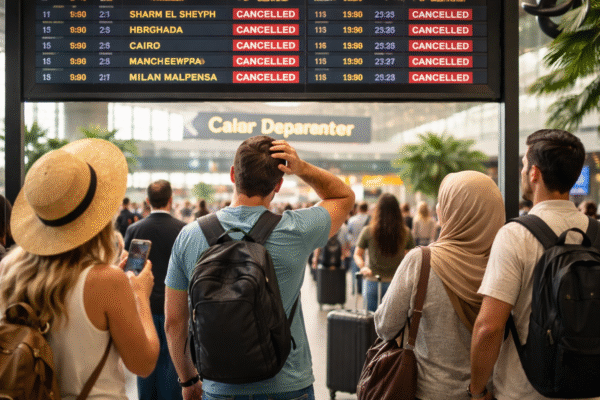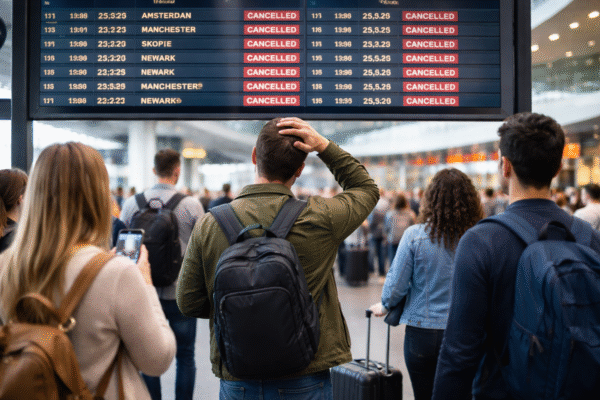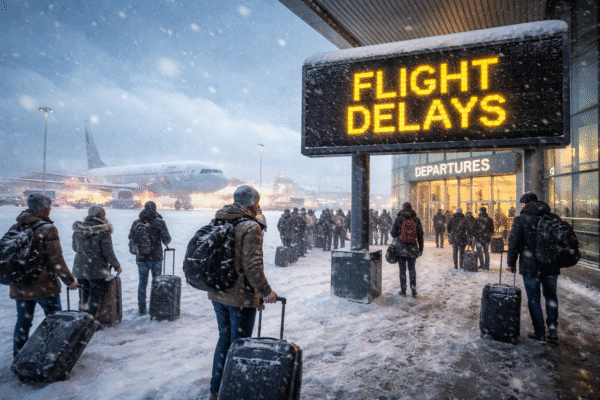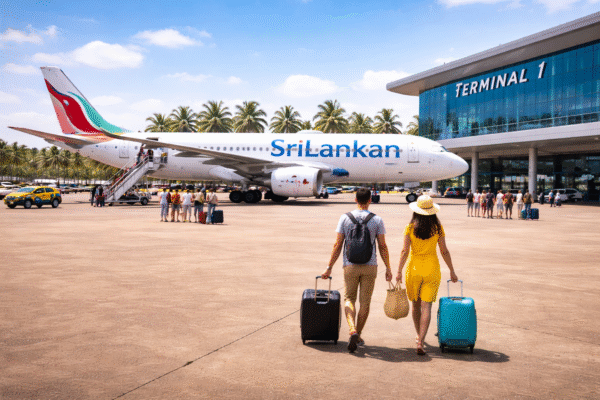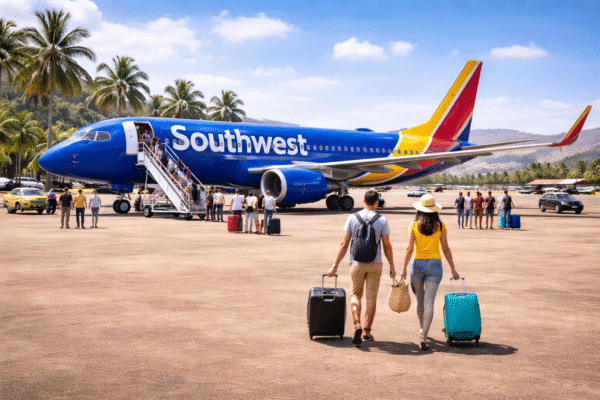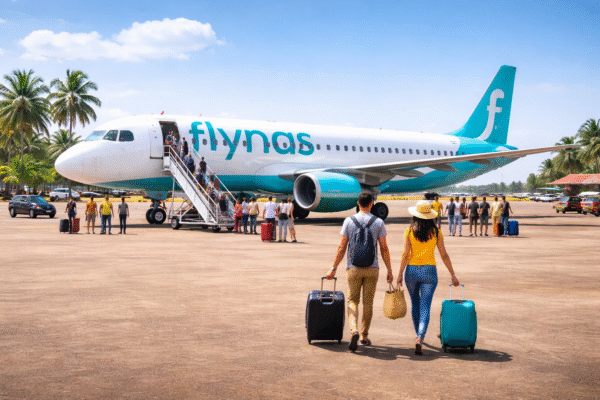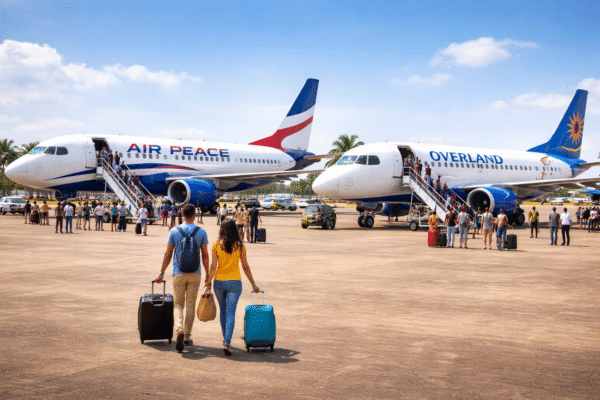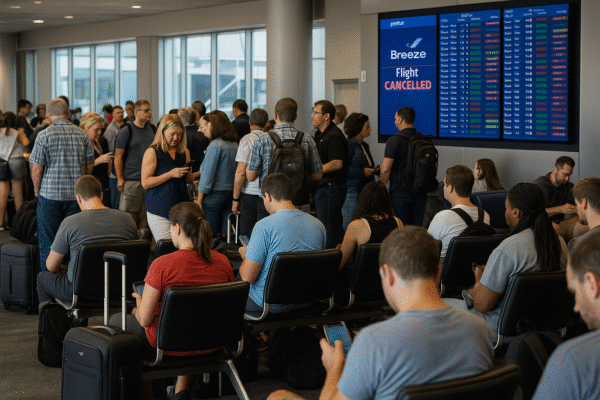U.S. & Bermuda – An unexpected whipping storm system associated with the remnants of Hurricane Erin has prompted JetBlue, Frontier Airlines, and Breeze Airways to suspend a total of 17 flights, severely disrupting travel across the Eastern U.S. and Bermuda. Severe weather—including coastal flood advisories—has triggered delays in major airports and shaken plans for thousands of travelers.
Weather’s Disruptive Reach
Officials from the National Weather Service reported that while Erin has shifted offshore, its outer bands are fueling dangerous conditions—coastal flooding, rip currents, and high surf—from the Eastern Seaboard through Bermuda. Tropical storm warnings remain in effect across the region.
These weather conditions have played a direct role in widespread flight cancellations, especially affecting travel nodes in New York (JFK), Atlanta (ATL), Miami (MIA), Dallas (DFW), Boston (BOS), Buffalo (BUF), Pittsburgh (PIT), Provo (PVU), Myrtle Beach (MYR), and Bermuda (BDA).
Breakdown of Cancellations & Delays
Across the carriers:
- JetBlue: 6 cancellations, 204 delays (21% of its operation).
- Frontier: 7 cancellations, 44 delays (6%).
- Breeze Airways: 4 cancellations, 6 delays (2%).
Overall, a combined 254 flight delays further disrupted travel plans across the network.
Frontier Airlines faced disruptions on key routes such as:
- ATL → BUF
- TTN → MYR
- DFW ↔ MIA
- ATL ↔ CVG
Travelers are encouraged to check Frontier’s digital tools for rebooking, credits or refunds.
JetBlue’s affected routes included:
- JFK ↔ PIT
- BOS ↔ BDA
Passengers are advised to monitor rebooking options through JetBlue’s Travel Alerts page.
Breeze Airways reported disruptions on regional flights including:
- GJT → LAS
- PVU ↔ SNA
Breeze has travel-alert support available for rerouting and alternative arrangements.
Passenger Experience and Advice
With the summer travel season in full swing, many travelers found themselves stranded, delayed, or urgently seeking alternatives. Airports reported chaotic scenes, with passengers waiting hours for updates amid unclear information flow.
Recommendations for Affected Travelers:
- Check flight status online before heading to the airport via airline websites or apps.
- Use rebooking tools offered digitally—many airlines waive change fees for severe-weather disruptions.
- Call customer service promptly if stranded—airlines may provide alternatives via partner routes or alternative modes.
- Stay informed about local advisories, especially along coastal areas impacted by flood watches and storm surge warnings.
Tourism Sector & Travel Resilience
The travel industry continues to grapple with increased vulnerability to weather disruptions amid climate volatility. Hurricane Erin’s large wind field and expansive surf zone are prime examples of how storms—even without landfall—can derail international and regional mobility.
Tourism stakeholders—from airports in Bermuda to hotel operators in Miami—will need robust contingency plans to support travelers during such events. The ripple effects reach far beyond cancellations, affecting bookings, tourism spending, and regional hospitality systems.
A Glimpse into Broader Weather Risks
Hurricane Erin, despite remaining offshore, caused life-threatening rip currents and coastal flooding across the U.S. East Coast—prompting emergency declarations and evacuations. Wave heights of 10–20 feet and significant erosion were anticipated.
Bermuda faced tropical-storm-strength winds and ferry service suspensions as the system passed nearby.
Summary Table
| Element | Impact |
|---|---|
| Airlines | JetBlue (6 cancels), Frontier (7), Breeze (4) + 254 delays |
| Major Airports | JFK, ATL, MIA, DFW, BOS, BUF, PIT, PVU, MYR, BDA |
| Root Cause | Severe weather and coastal advisories due to Hurricane Erin’s remnants |
| Traveler Advice | Check flight status, rebooking, stay informed via airline updates |
| Tourism Impact | Disruptions in hospitality and regional travel resilience needed |
Final Thoughts
JetBlue, Frontier, and Breeze Airways’ suspension of 17 flights amid Hurricane Erin’s lingering effects offers a stark reminder of weather-linked vulnerabilities within airline operations and tourism systems. For travelers, flexibility and advance planning remain essential. For the industry, investing in resilience—via contingency planning and clear communication—has never been more vital.
For more travel news like this, keep reading Global Travel Wire





